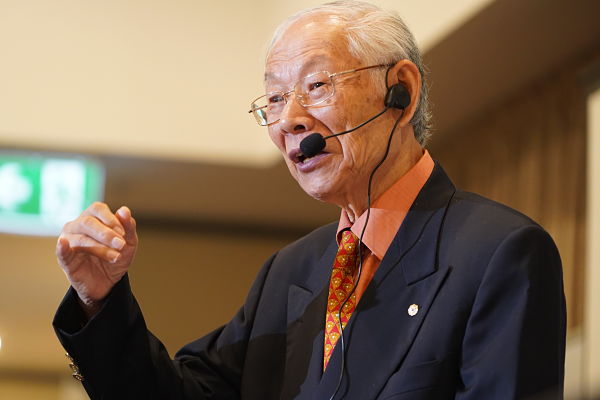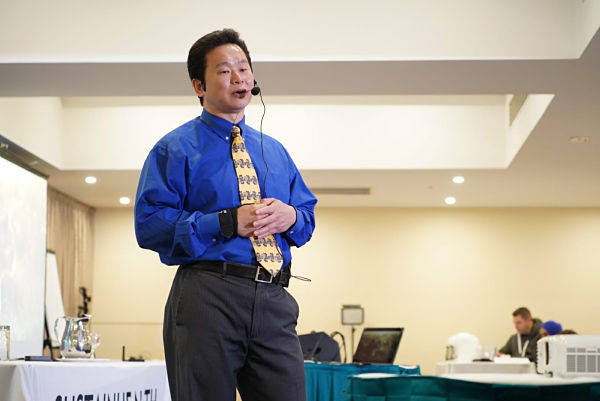
ZSA For Internal Medicine, Psychiatric Disorders, Five Senses & Emergency Conditions
Prof Ming Qing Zhu and Dr James Lu
REGISTER NOW!This Seminar Is Currently Not Available
CLICK HERE to be Notified when ZSA For Internal Medicine IS ANNOUNCED
Register for special offers and secure your spot first!
what our zsa students are saying
Charlene Tsang - Investing in a Bright Future
Dr Alia Melki - Helping Communities Globally
Dr Marcin Wolfinger - The Best of Both Worlds
Dr Peter Mejia - Rising to Meet the Challenge
Dr Sohial Farzam - Inspiring Solutions
Dr James Lu - A Wealth of Experience
the focus of the ZSA INTERNAL MEDICINE, PSYCHIATRIC DISORDERS, FIVE SENSES AND EMERGENCY CONDITIONS
This module focuses on the pathophysiology of the internal organs and the interrelationships of Zangfu with various bodily systems. Also, according to Chinese medicine, psychiatric disorders, cognitive impairments as well as problems of the five senses and the skin are associated with Zangfu.
This module will also discuss the treatment of common neurological diseases. In addition, you will learn how to diagnose and assess an acute medical situation, and how to provide urgent care using Zhu's Scalp Acupuncture and other means. Emergencies are acute, life-threatening situations that may happen anywhere, on a street, in a vehicle, on a plane, in a restaurant or inside your clinic. Appropriate management, while calling 911 and waiting for the paramedics to arrive, can make a difference of life and death
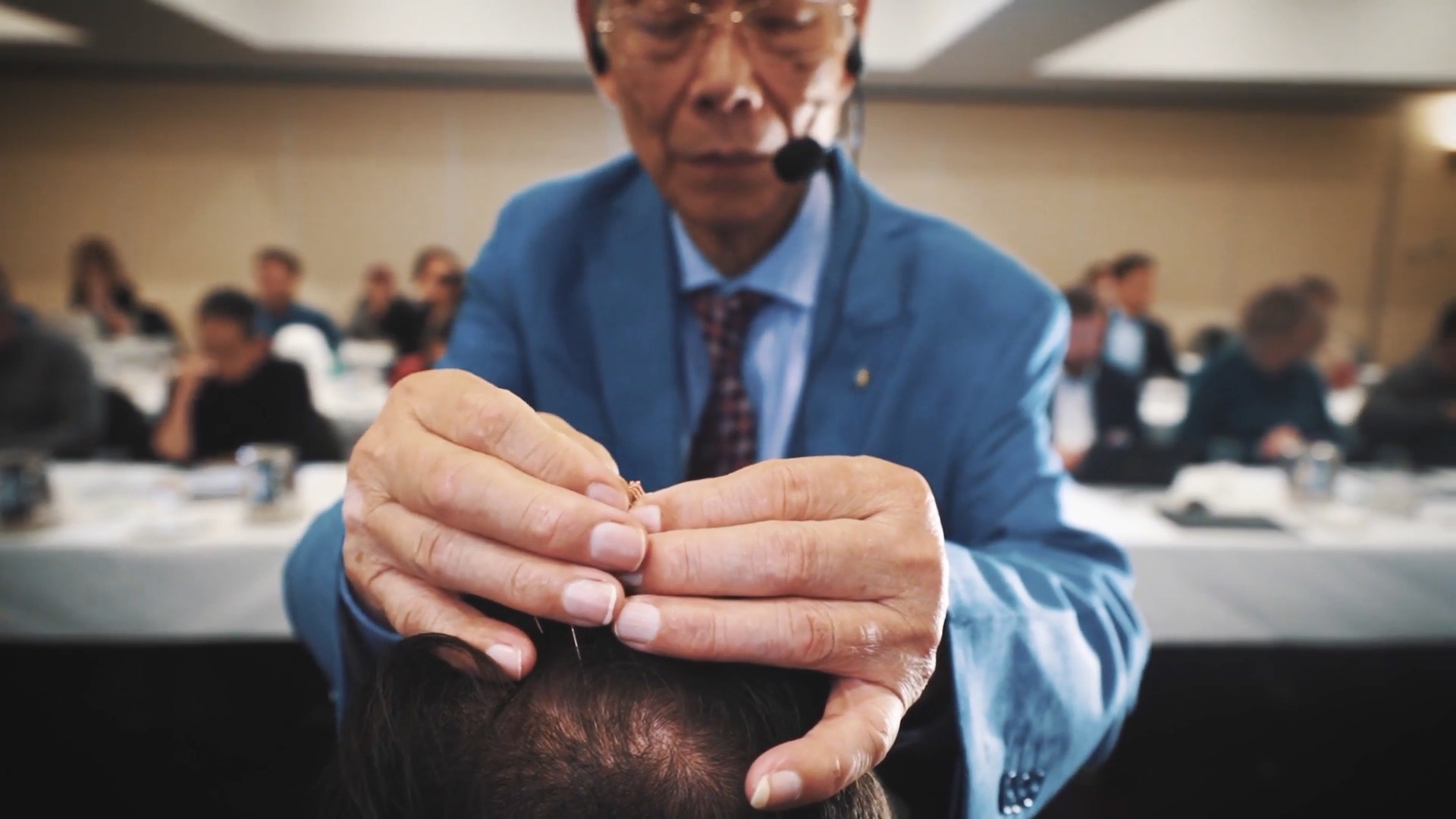
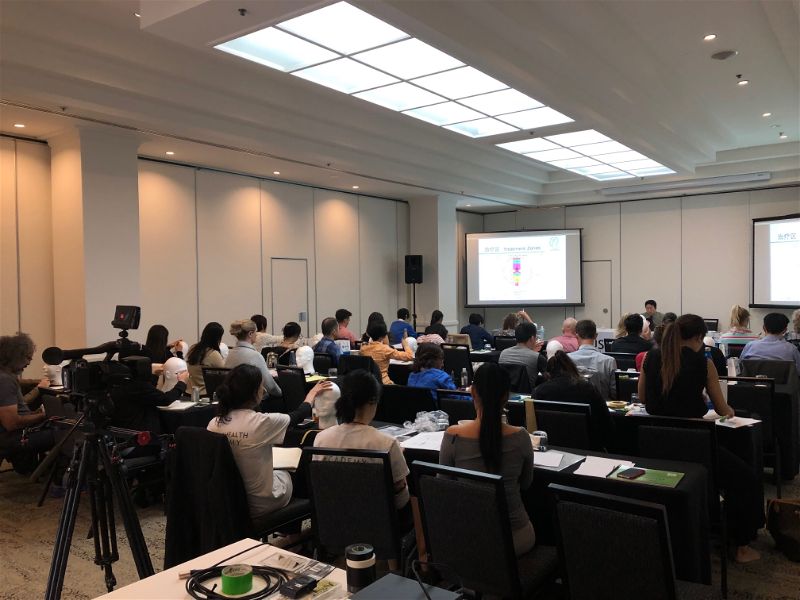
in this course you WILL LEARN how to treat:
- internal diseases
- depression, mania, anxiety, panic attacks, schizophrenia, mental retardation, memory degradation, dementia, psychosomatic disorders, chronic fatigue syndrome, autism, attention deficit hyperactive disorder, alcohol, and chemical dependency
- diseases of the Eye, Ear, Nose, Mouth, and Skin, including Vertigo, Meniere's disease, macular degeneration, optical neuritis, glaucoma, rhinitis, tinnitis, herpes zoster, eczema, psoriasis, etc
Zhu's scalp needle application in internal medicine
Respiratory system: cold, flu, cough, bronchitis, asthma, pneumonia, pleurisy, pulmonary fibrosis, pleural effusion, Hemoptysis
Digestive system: stomach pain, flatulence, appendicitis, diarrhea, constipation, vomiting, hiccups, gallstones, hepatitis, jaundice, hemorrhoids
Urinary system: urinary tract infection, prostatic hypertrophy, nephritis
Immune system disease: lupus erythematosus
Circulatory system: palpitations, chest oppression, angina, arrhythmia
Hormone disorder: hyperthyroidism, hypothyroidism, goiter, diabetes, diabetes insipidus
Reproductive system: menstrual disorders, menstrual pain,
premenstrual syndrome, uterine fibroids, ovarian cysts, menopausal syndrome, impotence, breech birth.
Other: insomnia, edema, fever
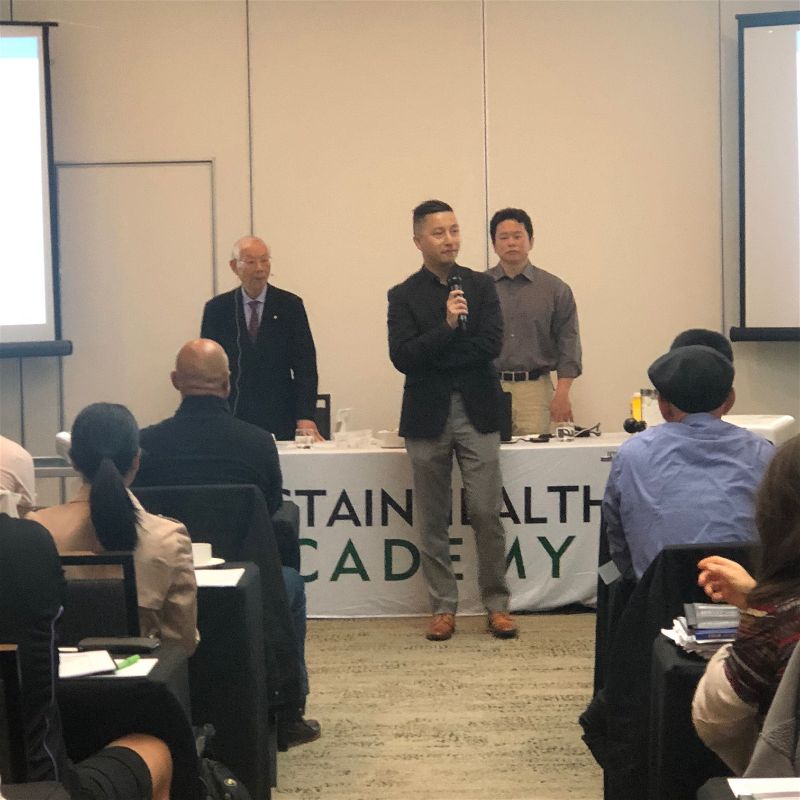
Zhu's scalp acupuncture treatment of facial diseases
- The relationship between the brain and the five internal organs
- Relationship between sensory organs and meridians
facial diseases: Common symptoms, diseases and treatments
EYE-External eye disease: stye, chalazion, blepharitis, trachoma, pterygium, conjunctivitis
EYE-Internal eye disease: floaters, cataracts, glaucoma, iritis, iridocyclitis, optic neuritis, macular degeneration, cortical blindness, hemianopia, diplopia, strabismus and so on
MOUTH & THROAT-Loss of taste, toothache, gum pain, mouth ulcers,
plum pit qi
EAR-Earache, otitis media, deafness, tinnitus, dizziness, acoustic neuroma
NOSE-Rhinitis, sinusitis, nasal septum deviation, loss of smell, nosebleed, nasal polyps
Zhu's scalp acupuncture treatment of psychiatric disorder
TCM theory of the manifestation of mental state
- The relationship between the brain and the five internal organs
- Five Zangs and their spiritual realms
- The etiology and pathogenesis of psychiatric disorders in Chinese medicine
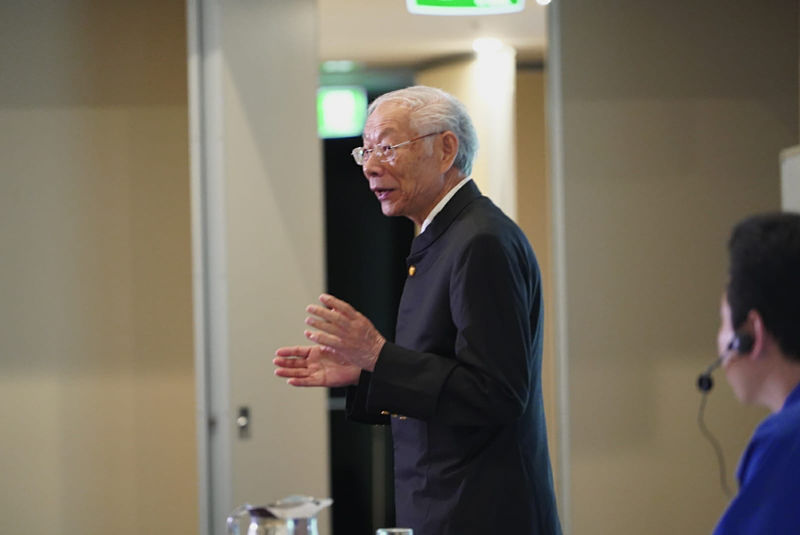
psychiatric disorder: COMMON SYMPTOMS, DISEASES AND TREATMENTS
Adaptation disorder: Anxiety disorders, phobias, panic attacks, obsessive-compulsive disorder, post-traumatic stress disorder, postpartum psychosis
Affective disorder: Depression, mania, bipolar disorder, premenstrual emotional disorder
Physical form disorder: Neurosis, hysteria, Hypochondriasis, chronic pain syndrome, chronic fatigue syndrome
Schizophrenia
Behavioural disorder :Eating disorders, sleep disorders, sexual dysfunction, ADHD, autism, tic disorder
Cognitive impairment: Amnesia, dementia, Alzheimer's disease
Addictive disorder:
♦Psychological disorders at different stages of life:
Childhood /Adolescence /Middle-aged/Menopause/ Geriatric
Application of Zhu's scalp needle in emergency department and acute care
TCM theory of the manifestation of mental state
- The advantages of acupuncture intervention in emergency department
- The scope of acupuncture intervention
- The best timing for acupuncture intervention
- The principle of acupuncture intervention in emergency department
EMERGENCY DEPARTMENT AND ACUTE CARE
Acupuncture intervention in life-threatening emergency
- Cardiac arrest
- Heart attack (myocardial infarction)
- Breathing stop
- Difficulty breathing
- Acute respiratory distress syndrome
- Coma
- Shock
- Traumatic brain injury and spinal injury
- Poisoning
Other emergency treatments
- Stroke
- Fainting
- Epilepsy
- Congestive heart failure
- Acute pain
- Acute paralysis
- Congestive heart failure
- Dizziness and vertigo
- Bleeding
- High Fever
- Jaundice
- Bleeding
- Trauma
- Acute spain
- Acute glaucoma
- Sudden aphasia
- Sudden loss of voice
HOW IS ZHU SCALP ACUPUNCTURE DIFFERENT FROM OTHER ACUPUNCTURE METHODS?
- The patient can easily be treated in a seated position.
- The application of needles is painless.
- Patients display immediate positive responses that translate into long term positive outcomes.
- Long needle retention times, even up to 3 days, provides the patient with a continual therapeutic action.
- It is an integrative form of medicine, informed by both Western and Chinese Medicine paradigms.
- The necessity for ‘Daoyin’ as part of the treatment in order to achieve superior clinical outcomes.
- ZSA is easily integrated with other styles of Acupuncture without conflict
All about Professor Zhu
Prof. Zhu was born in Shanghai, China in 1940. After graduating in 1964 from the first acupuncture class at the Shanghai University of Chinese Medicine, Prof. Zhu was sent to work in Guizhou. In no time, he earned the reputation of a seasoned doctor because of the remarkable results of his works.
On November 24, 1987, he demonstrated an innovative acupuncture technique on a hemiplegic stroke patient at the 1st International Conference of Acupuncture and Moxibustion in Beijing, where the patient stood up and ambulated without support. He has continued to garner international recognition since then.
Prof. Zhu is the original founder of Zhu's Scalp Acupuncture. To learn more about Prof. Zhu click here.
All about Professor Zhu
Prof. Zhu was born in Shanghai, China in 1940. After graduating in 1964 from the first acupuncture class at the Shanghai University of Chinese Medicine, Prof. Zhu was sent to work in Guizhou. In no time, he earned the reputation of a seasoned doctor because of the remarkable results of his works.
On November 24, 1987, he demonstrated an innovative acupuncture technique on a hemiplegic stroke patient at the 1st International Conference of Acupuncture and Moxibustion in Beijing, where the patient stood up and ambulated without support. He has continued to garner international recognition since then.
Prof. Zhu is the original founder of Zhu's Scalp Acupuncture. To learn more about Prof. Zhu click here.
All about Dr James Lu
Dr Lu is a direct disciple of Dr Zhu and the director of Zhu’s Neuro Acupuncture & Rehabilitation Centre.
Dr. Lu, a licensed Acupuncturist and Physical Therapist, has been in the medical profession for over 20 years. He has worked as Director of Rehabilitation and Senior Physical Therapist in a variety of settings, including hospitals, rehabilitation centers and private clinics. His primary experience has been in the realms of orthopedics, stroke rehabilitation, balance/vestibular disorders and pain management. Dr. Lu holds a doctorate in Physical Therapy from The University of St. Augustine, and a Master’s of Science from The American College of Acupuncture and Oriental Medicine.
To learn more about Dr Lu click here.
what our zsa students are saying
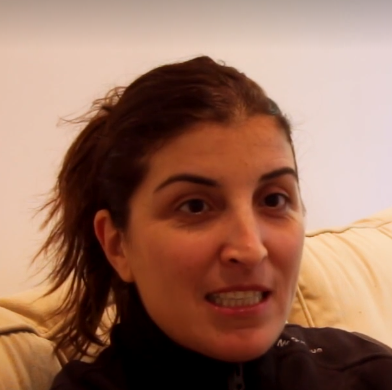
"What I am loving about the ZSA courses is it's just so easy and practical...I can treat immobile people in a much quicker way"
Dr Alia Melki
Acupuncturist, Lebanon
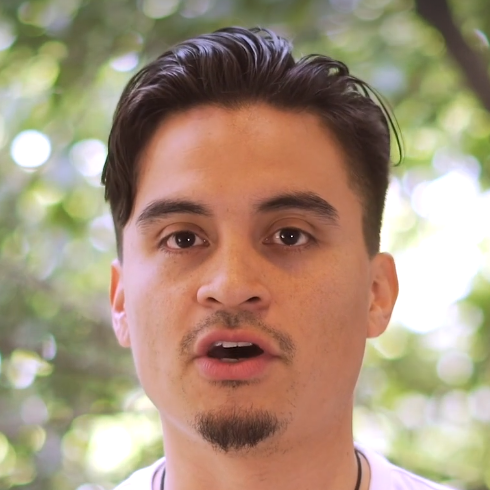
"I think that when you learn from someone you want to be friends with and be around all the time you will just absorb all the information easier"
Dr Peter Mejia
Acupuncturist, Australia
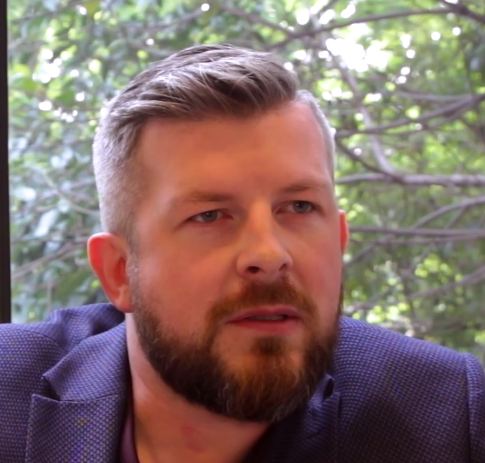
"I get very good results, especially with stroke patients. The human body is not only the body but the mind"
Dr Marcin Wolfinger
Neurologist, Poland
frequently asked questions
and some answers...
Is there any previous requirements to complete this seminar?
In order to attend the ZSA Advanced modules attendees must attend or have previously completed the Basics of Scalp Acupuncture module
How do I get the best seat for the seminar?
Early payment determines priority seating...the earlier the payment the better the seat
How many seats are available for the seminar?
Venue limited to 40 seats for each module. Reserved 5 seats only reserved for repeat attendees.
How do I become a fully qualified accredited Zhu's Scalp Acupuncture Practitioner?
To become a fully qualified accredited Zhu's Scalp Acupuncture Practitioner all four modules must be completed as well as a short internship in China organised through SustainHealth Academy
Are course notes for the ZSA seminars provided in English?
Yes, all course notes provided at ZSA seminars are written in English.
Have More Questions ?
Email us at info@sustainhealthacademy.com.au, and we'll get back to you asap!
I have attended this seminar before but would like to do a refresher?
For repeat attendees please email us...
only 10 seats reserved for repeat students of ZSA courses.
SCHEDULE
07:00 – 08:00
08:00 – 09:30
09:30 – 09:45
09:45 – 11:15
11:15 – 11:30
11:30 – 12:30
12:30 – 14:00
14:00 – 15:30
15:30 – 15:45
15:45 – 17:00
17:00 – 17:15
17:15 – 18:00
registration
Introduction, Internal Medicine
Tea break
INTERNAL MEDICINE
Tea break
INTERNAL MEDICINE
Lunch break
INTERNAL MEDICINE PROCEDURES AND TREATMENTS
TEA BREAK
INTERNAL MEDICINE PROCEDURES AND TREATMENTS
Tea Break
hands on lab
09:00 – 11:00
11:00 – 11:30
11:30 – 13:00
13:00 – 14:00
14:00 – 16:00
16:00 – 16:30
16:30 – 18:30
Therapy of commonly seen and difficult diseases
Tea break
Therapy of commonly seen and difficult diseases
Lunch break
Therapy of commonly seen and difficult diseases
Tea Break
Therapy of commonly seen and difficult diseases
SCHEDULE
08:30 – 09:00
09:00 – 11:00
11:00 – 11:15
11:15 – 13:00
13:00 – 14:00
14:00 – 15:30
15:30 – 15:45
15:45 – 17:00
registration
Introduction, Internal Medicine
Tea break
INTERNAL MEDICINE
Lunch break
INTERNAL MEDICINE
Tea Break
INTERNAL MEDICINE
09:00 – 11:00
11:00 – 11:30
11:30 – 13:00
13:00 – 14:00
14:00 – 16:00
16:00 – 16:30
16:30 – 18:30
Therapy of commonly seen and difficult diseases
Tea break
Therapy of commonly seen and difficult diseases
Lunch break
Therapy of commonly seen and difficult diseases
Tea Break
Therapy of commonly seen and difficult diseases

